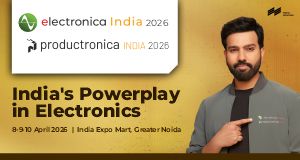Artificial intelligence is part of our modern life by enabling machines to learn useful processes such as speech recognition and digital personal assistants. A crucial question for practical applications is how fast such intelligent machines can learn. An experiment at the University of Vienna has answered this question, showing that quantum technology enables a speed-up in the learning process. The physicists, in an international collaboration within Austria, Germany, the Netherlands, and the U.S., have achieved this result by using a quantum processor for single photons as a robot. This work, which con-tributes to the advancement of quantum artificial intelligence for future applications, is published in the current issue of the journal Nature.
Robots solving computer games, recognizing human voices, or helping in finding optimal medical treatments: those are only a few astonishing examples of what the field of artificial intelligence has produced in the past years. The ongoing race for better machines has led to the question of how and with what means improvements can be achieved. In parallel, huge recent progress in quantum technologies have confirmed the power of quantum physics, not only for its often peculiar and puzzling theories, but also for real-life applications. Hence, the idea of merging the two fields: on one hand, artificial intelligence with its autonomous machines; on the other hand, quantum physics with its powerful algorithms.
Over the past few years, many scientists have started to investigate how to bridge these two worlds, and to study in what ways quantum mechanics can prove beneficial for learning robots, or vice versa. Several fascinating results have shown, for example, robots deciding faster on their next move, or the design of new quantum experiments using specific learning techniques. Yet, robots were still incapable of learning faster, a key feature in the development of increasingly complex autonomous machines.
Within an international collaboration led by Philip Walther, a team of experimental physicists from the University of Vienna, together with theoreticians from the University of Innsbruck, the Austrian Academy of Sciences, the Leiden University, and the German Aerospace Center, have been successful in experimentally proving for the first time a speed-up in the actual robot’s learning time. The team has made use of single photons, the fundamental particles of light, coupled into an integrated photonic quantum processor, which was designed at the Massachusetts Institute of Technology. This processor was used as a robot and for implementing the learning tasks. Here, the robot would learn to route the single photons to a predefined direction. “The experiment could show that the learning time is significantly reduced compared to the case where no quantum physics is used,” says Valeria Saggio, first author of the publication.
In a nutshell, the experiment can be understood by imagining a robot standing at a crossroad, provided with the task of learning to always take the left turn. The robot learns by obtaining a reward when doing the correct move. Now, if the robot is placed in our usual classical world, then it will try either a left or right turn, and will be rewarded only if the left turn is chosen. In contrast, when the robot exploits quantum technology, the bizarre aspects of quantum physics come into play. The robot can now make use of one of its most famous and peculiar features, the so-called superposition principle. This can be intuitively understood by imagining the robot taking the two turns, left and right, at the same time. “This key feature enables the implementation of a quantum search algorithm that reduces the number of trials for learning the correct path. As a consequence, an agent that can explore its environment in superposition will learn significantly faster than its classical counterpart,” says Hans Briegel, who developed the theoretical ideas on quantum learning agents with his group at the University of Innsbruck.
This experimental demonstration that machine learning can be enhanced by using quantum computing shows promising advantages when combining these two technologies. “We are just at the beginning of understanding the possibilities of quantum artificial intelligence” says Philip Walther, “and thus every new experimental result contributes to the development of this field, which is currently seen as one of the most fertile areas for quantum computing.”







